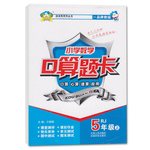题目内容
Japan’s economy _______ in the past twenty years. No one knows how long it ______ before it regains its increase
- A.has been declining; will be
- B.has declined; would be
- C.had been in decline; would take
- D.was on the decline; will take
试题分析:考查动词的时态和语态,。句义:在过去的二十年里日本经济已经下滑了。没有人知道再过多久才能恢复增长。
考点:动词的时态和语态,

 小学教材全测系列答案
小学教材全测系列答案 小学数学口算题卡脱口而出系列答案
小学数学口算题卡脱口而出系列答案The long, lonely voyage of the Japanese ghost ship is over.
A US Coast Guard cutter poured cannon fire into an abandoned Japanese ghost ship that had been drifting since last year’s tsunami (海啸), sinking the vessel into waters more than 305 meters deep in the Gulf of Alaska and removing the danger it posed to shipping and the coastline on Thursday.
The cutter’s guns tore holes in the 164-foot Ryou-Un Maru, and then it began to take on water and lean to one side. In about four hours, the ship disappeared into the sea, said Chief Petty Officer Kip Wadlow.
The ship had no lights or communications system, and its tank was able to carry more than 7,570 liters of diesel fuel. Officials, however, didn’t know exactly how much fuel was aboard.
“It’s less risky than it would be running into shore or running into other ships,” coast guard spokesman Paul Webb said.
The US National Oceanic and Atmospheric Administration and the Environmental Protection Agency studied the problem and decided it is safer to sink the ship than let the fuel evaporate and pollute the sea environment.
Ryou-Un Maru was probably among the first wave of the 1.5 million tons of garbage of refrigerators, washing machines, televisions, roofs and fishing nets heading toward North America since last March when a magnitude-9.0 earthquake struck Japan.
As the coast guard was ready to fire on the vessel, a Canadian fishing vessel, the 19-meter Bernice C, claimed the rights to save the ghost ship in international waters.
Plans to sink it were paused so the Canadian crew could have a chance to take the stricken ship. A Canadian official with knowledge of the situation told the Associated Press that the Bernice C was unable to drag it.
Then the Canadian boat left, and once it was about 10 kilometers from the Japanese vessel, the Coast Guard began to fire, first with 25 mm shells, then a few hours later with ammunition (弹药)twice that size.
State officials have been working to test the danger of garbage including materials affected by a damaged nuclear power plant, to see if Alaska residents, seafood or wild animals could be affected.
【小题1】The plan to fire on the Japanese ghost ship was paused because ____________.
| A.the ghost ship was beyond the reach of the Coast Guard’s guns |
| B.state officials worried the ghost ship might give out radiation |
| C.the shells were not powerful enough to sink the ghost ship |
| D.a Canadian fishing boat wanted to save the ghost ship |
a. Its long, lonely voyage came to an end.
b. The US Coast Guard sank it into the sea.
c. The ship began to float across the Pacific Ocean.
d. A big tsunami was caused by great earthquakes.
e. Bernice C claimed rights to save the ghost ship.
| A.d, c, e, b, a | B.a, b, d, c, e | C.c, e, d, a, b | D.b, a, d, c, e |
| A.Japanese ghost ship arriving at US |
| B.Tsunami garbage heading to US |
| C.Japanese ghost ship polluting the Pacific |
| D.Cannon fire sinking Japanese ghost ship |
For hundreds of years, Japan has been hit, from time to time, by tsunamis(海啸), which are caused by earthquakes or underwater volcanoes. The story of the boy Yuuki is the story of such a disaster.
Yuuki lived with his family in a seaside village, below a small mountain. One day, as he played on top of the mountain, Yuuki felt a small earthquake but it was not strong enough to frighten anybody. Soon after, however, Yuuki noticed the sea darken and begin running away from the shore very fast, leaving behind wide areas of beach that had never been seen before.
Yuuki remembered reading that just before a terrible tsunami, the sea suddenly and quickly rolls backward. He ran to the beach, warning the villagers who had gathered to admire the new beach land.
But no one listened. They laughed at him and continued playing in the new sand.
Desperate, Yuuki could think of only one thing to do. He lit a tree branch, raced to the rice fields and began burning the harvested rice. Then he called out, “Fire! Fire! Everyone run to the mountain! Now!”
When everyone reached the mountain top, a villager cried out, “Yuuki is mad! I saw him set the fire.” Yuuki hung his head in shame, but said nothing as the villagers screamed at him.
Just then, someone shouted, “Look!”
In the distance a huge dark wave of water was speeding towards the shore. When it hit the shore, it destroyed everything.
On the mountain everyone stared at the village ruins in terror.
“I'm sorry I burned the fields,” said Yuuki, his voice trembling.
“Yuuki,” the village chief answered. “You saved us all.”
The villagers cheered and raised Yuuki into the air. “We were going to celebrate our rice harvest tonight,” said one, “but now we’ll celebrate that we’re all still alive!”
【小题1】 Where was Yuuki when the earthquake struck?
| A.On the beach. | B.On the mountain. |
| C.In the rice fields. | D.At home. |
a.Yuuki ran to the rice fields.
b.The villagers paid no attention to Yuuki’s word.
c.Yuuki went to warn the villagers.
d.The village was in ruins.
e.The people were screaming at Yuuki.
| A.c, b, d, a, e | B.a, c, d, b, e | C.c, b, a, e, d | D.a, c, d, e, b |
| A.He told them about the earthquake. |
| B.He explained why the sea was flowing out. |
| C.He told the village chief to warn the people. |
| D.He set fire to the rice field. |
| A.Burn the rice crop. | B.Play on the beach. |
| C.Climb the mountain. | D.Celebrate the rice harvest. |